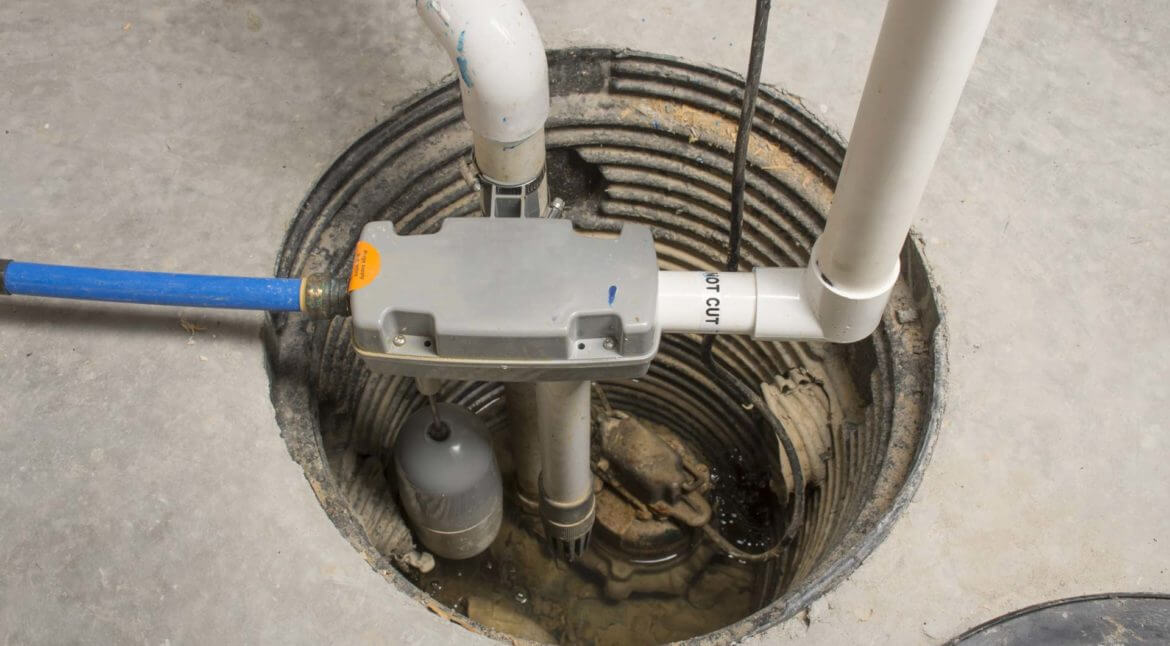Basements are often one of the most vulnerable areas in a home when it comes to water damage.
Whether it’s due to heavy rainfall, melting snow or rising groundwater, a flooded basement can lead to costly repairs and significant inconvenience.
One of the most effective ways to protect your basement is by installing a sump pump.
Learn how a sump pump can be your home’s best defense against water damage.
For expert advice and installation, call Plumbers 911 for a referral to our network of plumbing contractors.
Understanding the Role of a Sump Pump
A sump pump is a device designed to prevent basement flooding by collecting and redirecting water away from your home’s foundation.
Installed in a sump pit, typically located at the lowest point of your basement, the pump activates when water levels rise, ensuring your basement remains dry even during the wettest conditions. This proactive approach to water management can save homeowners from the stress and expense of water damage repairs.
Why you need a sump pump
- Flood Prevention: The primary benefit of a sump pump is its ability to keep your basement dry by preventing water accumulation. This is particularly important in areas prone to heavy rainfall or where the water table is high.
- Foundation Protection: Water can weaken your home’s foundation over time, leading to cracks and structural issues. By directing water away from the foundation, a sump pump helps maintain your home’s structural integrity.
- Healthier Living Environment: A damp basement can lead to mold and mildew growth, which can cause health problems like allergies and respiratory issues. A sump pump helps to keep these issues at bay by maintaining a dry environment.
- Increased Home Value: A home with a reliable sump pump system is more appealing to potential buyers. It signals that the property is well-maintained and protected against water-related issues.
Ensure your home is protected—call Plumbers 911 to discuss your sump pump needs.
Choosing the right sump pump for your home
Selecting the right sump pump involves considering the size of your basement, the volume of water it may need to handle and your budget. Here are the two main types of sump pumps:
- Submersible Sump Pumps: These are designed to operate underwater and are ideal for larger basements with significant water issues. They are known for their efficiency and quiet operation.
- Pedestal Sump Pumps: These pumps have the motor mounted above the sump pit, making them easier to service. They are suitable for smaller basements with less severe water problems.
Essential maintenance tips
To ensure your sump pump continues to operate effectively, regular maintenance is crucial. Here are some tips to keep your system in top shape:
- Routine Testing: Periodically pour water into the sump pit to ensure the pump activates and drains the water efficiently.
- Clear Debris: Regularly inspect the sump pit and pump for debris that could cause clogs or reduce efficiency.
- Power Backup: Consider installing a battery backup system to ensure your sump pump functions during power outages, which often coincide with severe weather.
For maintenance assistance, call Plumbers 911 for a referral to a local contractor who can keep your sump pump working in peak condition. Don’t wait for a flood to find out if your sump pump is working.
Trust Plumbers 911 for your sump pump needs
At Plumbers 911, we connect you with a network of licensed, insured and highly trained professionals ready to assist with all your plumbing needs. Our experts can help you choose the right sump pump for your home and provide reliable installation and maintenance services. With over 10,000 hours of training and rigorous background checks, our affiliated plumbers ensure top-notch service and peace of mind.


